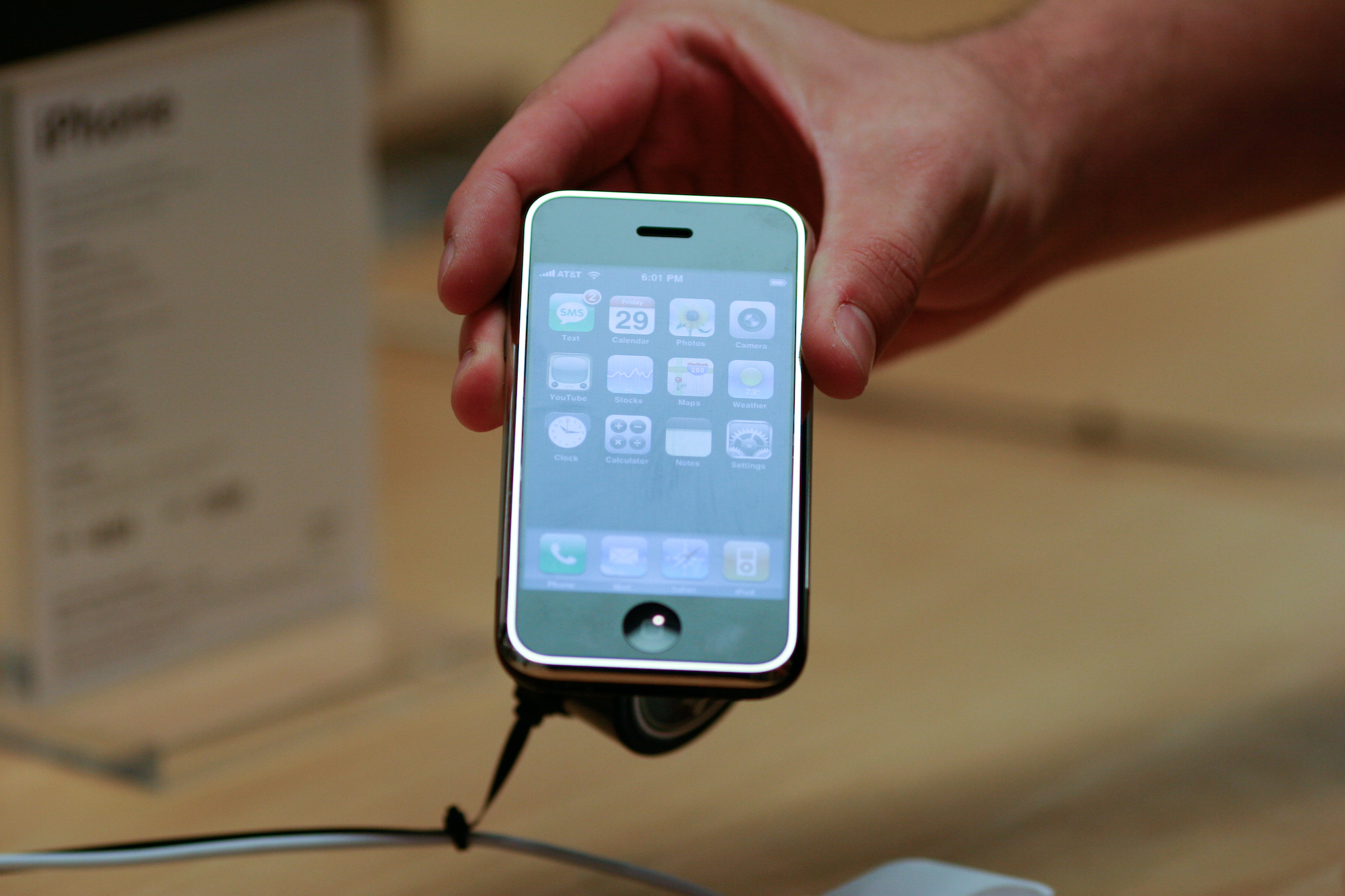
The iPhone Legacy
Steve was right, and I don't refer to Apple cofounder Jobs, but to an iPhone buyer I met 10 years ago today. He was among the eclectic group of people waiting outside Apple Store Montgomery Mall to spend $499 or $599 on the fruit logo company's first smartphone. The amount was outrageous at the time for a locked, unsubsidized handset. "I think this is a day that you’re going to see a change in how computers, how handheld computers are done", he told me. "I think we’ll look back in 10 or 15 years, and like on that day the gadget came out...it changed the game". Could anyone realistically disagree a decade later?
But you had to be a believer in June 2007, with iPhone launching on a single carrier (newly rebranded AT&T) in a single geography (USA) from a company with no cellular device experience going against hugely established competitors—with Nokia, the smartphone's inventor, standing atop the heap. By every sensible measure imaginable, Jobs and his team took nothing but risks, making Steve the customer's prediction all the more remarkable.

Apple iOS 10 playing catch-up with Android
Apple held its annual Worldwide Developers Conference (WWDC) on June 13 in San Francisco, where Tim Cook and his team announced a wide array of new features and functionality across Apple platforms, including a major update to iOS, the renaming of mac OS X to macOS (the new version will be named Sierra) and updates to watchOS, and tvOS were also announced.
After reading about it though, I can’t help but think that we already have a lot of the features talked about in a number of Android devices and personally feel that Apple is merely playing catch-up to Android. That said, I will leave you to make up your own mind.
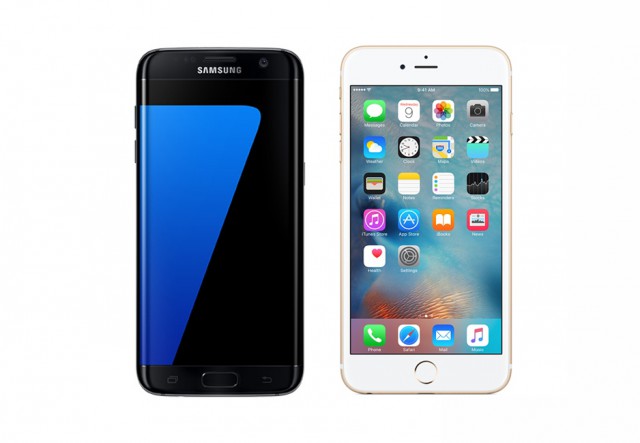
iOS 9.3 is more stable than Android 6.0 Marshmallow
Every major iOS release seems to come with some annoying bugs these days. In the case of iOS 9.3, users have reported crippling activation errors and crashes and hangs in some of the built-in apps, leading Apple to release updated builds. However, despite these problems, iOS 9.3 seems to be very reliable.
According to a new report by Apteligent, iOS 9.3 is actually the most stable iOS release since iOS 8. Its crash rate stands at 2.2 percent, besting iOS 9.2, iOS 9.1, iOS 9 and iOS 8 over an eight-day period. Not only that, but iOS 9.3 is also claimed to be more stable than Android 6.0 Marshmallow.
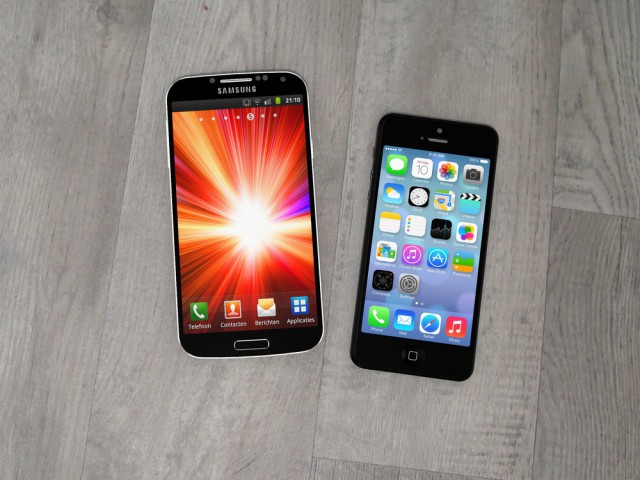
Google Play gets more downloads, but Apple's App Store leads in revenue
Apple's App Store generated 75 percent more revenue than Google Play in 2015, but the latter is now responsible for 100 percent more downloads, according to a new report on the state of the app ecosystem in 2015 by App Annie. Both numbers are higher compared to the previous year.
App Store has increased its revenue lead to 75 percent from 70 percent in 2014, while Google Play saw its downloads lead rise from 60 percent in the same year. The most important markets were, in Apple's case, China, US and Japan, while for Google the drivers were Brazil, India, Indonesia and Mexico.
Two weeks with Google Pixel C [preview]
For about a fortnight, I have used Google's Pixel C as my primary tablet. I like the 10.2-inch slate much more than anticipated, particularly after being negatively influenced by some rather lukewarm techsite reviews before FedEx delivered the tab to my door.
Google designed and produces Pixel C, which is by far the best Android tablet you can buy anywhere. Like Nexus smartphones, which debuted in January 2010, the tablet is meant as a reference design for OEMs and developing Android apps appropriate for larger, but still mobile, screens. I primarily will focus on the hardware this round; apps and Android will come next year in my full review.
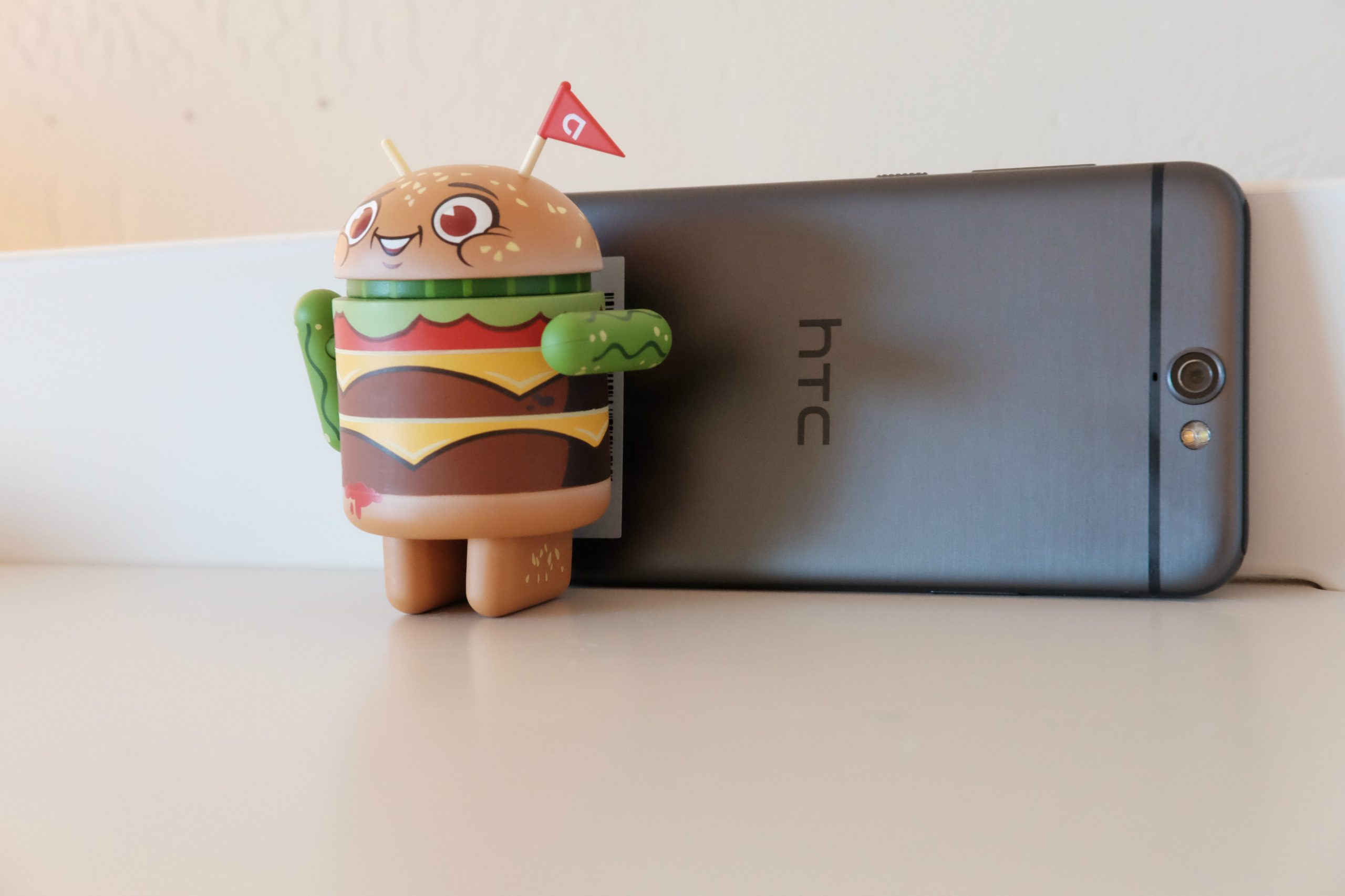
Is HTC's A9 the One? [review]
So you bought iPhone 6. You love the understated styling of the aluminum enclosure and how the device feels in your hands. But iOS is a dog brain. It's loyal and friendly, but you want more than a tail-wagger that needs to be let out to pee. HTC has your back, with the shockingly similar-looking One A9. The imitator gives you close-enough design benefits with the extra bang of the freshest Android (Marshmallow).
Over the Black-Friday-to-Cyber-Monday weekend, one in ten A9 buyers moved up from iPhone 6 or 6s series devices, according to HTC. The manufacturer has a holiday special ending Jan. 7, 2016 that allures some switchers. Trade-in one of the Apples for full discount off the A9's purchase price (HTC mails a $499.99 check after receiving the old device). Galaxy S6 and S6 Edge traders get $200 and LG3 and LG4 owners $100.
Where in the world is Google Pixel C?
Black Friday is behind us, Cyber Monday is here, and Christmas shipping new purchases cuts off in about three weeks. Which makes me wonder: Where is Google's new tablet? When announced at the end of September, Google product director Andrew Bowers said that the "Pixel C will be available in time for the holidays on the Google Store". Eh, yeah—by whose measure is "in time". The information giant typically sells out of new gear, which leaves little time to manage inventory. "Out of stock" notices will disappoint many shoppers, who may buy something else.
I watched for this baby to drop before Thanksgiving, particularly with Apple iPad Pro already available—three weeks now. Granted, the devices target different markets, if for no other reason than size (12.9 and 10.2 inches, respectively). But each is innovative and stylish and would make great presents for someone. I'm ready to buy, Google. As surely are many Android fanboys. I reached out to the PR staff there today and was told to "stay tuned", which could be interpreted as soon. We shall see, eh?

Holiday 2015 Gift Guide: Smartphones
If you're smartphone shopping this holiday and wondering what to buy, my primer can assist—with caveats. I focus solely on Androids that are higher end but affordable, and I ignore iPhones. No slight against Apple devices is intended. I figure that people who want an iPhone won't likely consider an alternative. Also: The differences aren't as pronounced. For example, the major benefit choosing 6s or 6s Plus over the two previous models is slightly lower price (3D Touch is an unnecessary gimmick). The major benefit picking 5s over the 6 or 6 Plus is again price but also smaller size.
Among Androids, differences abound—and many, such as older OS versions or custom UI skins, are carrier or manufacturer imposed. That's without considering the bloatware that either or both parties might impose. I intentionally focus on devices that offer the most value for price paid, which includes upfront or payment-plan purchased unlocked.
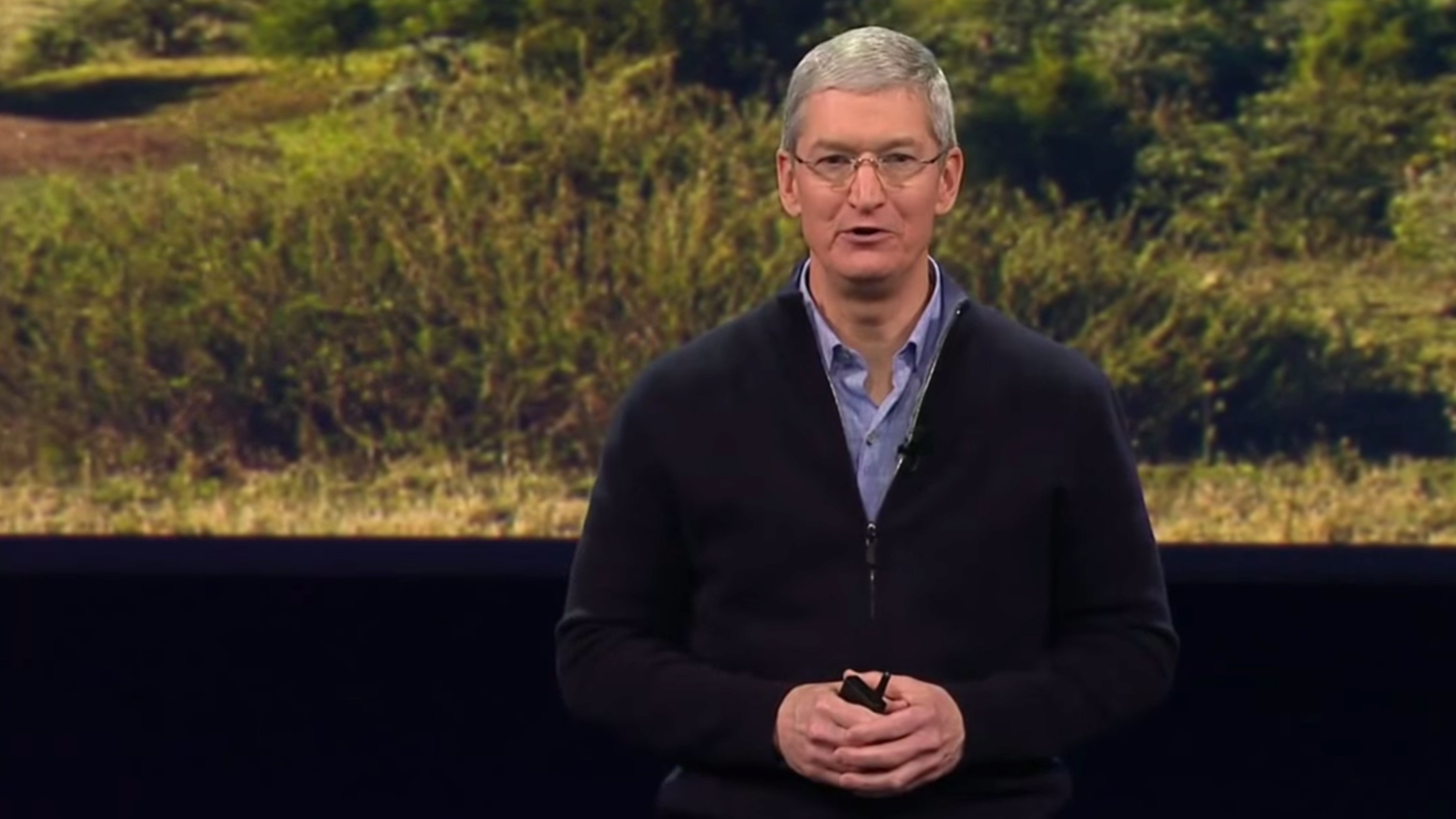
Just because Apple CEO Tim Cook claims something doesn't make it true
The haughty headline from yesterday's Apple fiscal fourth quarter 2015 earnings report isn't big revenue or profit performance ($51.5 billion and $11.1 billion, respectively), but a figure given by CEO Tim Cook during the analyst call: "We recorded the highest rate on record for Android switches last quarter at 30 percent".
Blogs, and some news sites, set the statement off like an atomic blast of free marketing for Apple. The fallout spreads across the InterWebs this fine Wednesday, largely undisputed or corroborated. Just because Cook claims something doesn't make it true. To get some perspective, and to either correct or confirm the public record, today I asked a half-dozen analysts: "Does your analysis of the smartphone market support that assertion?"
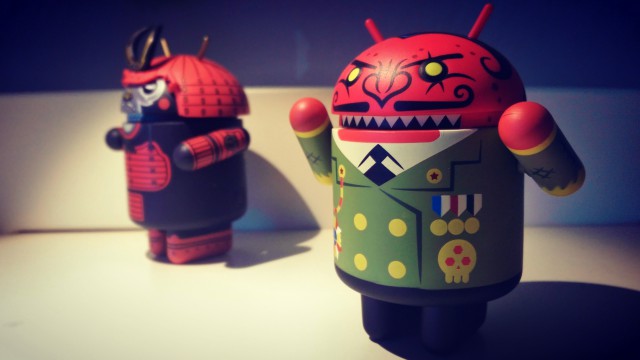
Is Android a dangerous monopoly?
I can't confirm Bloomberg's report that the the U.S. Federal Trade Commission and Justice Department allegedly are beginning a joint investigation into Google's Android licensing agreements. But I can explain what it means. Striping to the bones, from an antitrust perspective, there are two pivot points: Monopoly position and exclusive contracts. Then there is the broader regulatory agenda: Correcting (or preventing future) consumer harm.
Globally, Android is unquestionably a monopoly in the market for smartphones. However, its dominance in the United States is comparably muted by competition from iPhone. Based on smartphone subscribers, Android's share was 51.4 percent for the three months ending July 31, 2015, according to comScore. iOS ranked second with 44.2 percent. By cell phone manufacturer, Apple leads the market, with the same share, followed by Samsung (27.3 percent). Android is leading but declining—down 0.8 points, while iOS is up 1.1 points, from April to July.

OK, Google, make some Apple sauce
In my last post, I joke about the other five people who also bought Nexus 6 to make a broader point. Apple laps up positive PR—and rubs Android's nose in stinky sidewalk dog poop—by touting rapid iOS 9 adoption. Based solely on devices accessing the iTunes App Store, the number is 52 percent as of September 19. By the same measure, as of September 7, from Google Play: 20 percent of Androids run the newest version, Lollipop. iOS 9 released last week, and Android 5 arrived last year. Ouch!
Google shouldn't let the comparison stop there. The company should release Lollipop adoption data selectively, for stock Android devices like Nexus 6. That makes the comparisons to iOS more equal, being devices for which both companies control updates. Apples to, ah, Apple is more appropriate and responsive public relations management.
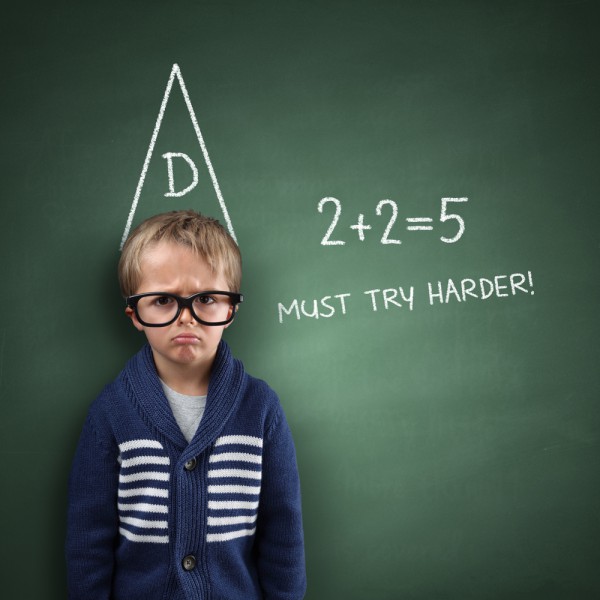
Why are non-iPhone makers so stupid?
The first weekend of iPhone 6s and 6s Plus preorders are behind us, but Apple already looks ahead. This morning, the company presumably sought to quell last week's Wall Street jitters in statements to CNBC, Financial Times, and MarketWatch, among other news services popular with investors. This is perception-management at Apple's finest, and it is metaphor for success selling smartphones and why most competitors flounder by comparison.
I didn't receive the statement and so cannot attest to its veracity. But presuming esteemed financial news services accurately report, misdirection isn't much better than this. Apple doesn't give an exact figure, instead stating: "We are on pace to beat last year's 10 million unit first-weekend record when the new iPhones go on sale Sept. 25". How circumspect is that? Ten million the first weekend two weeks later?
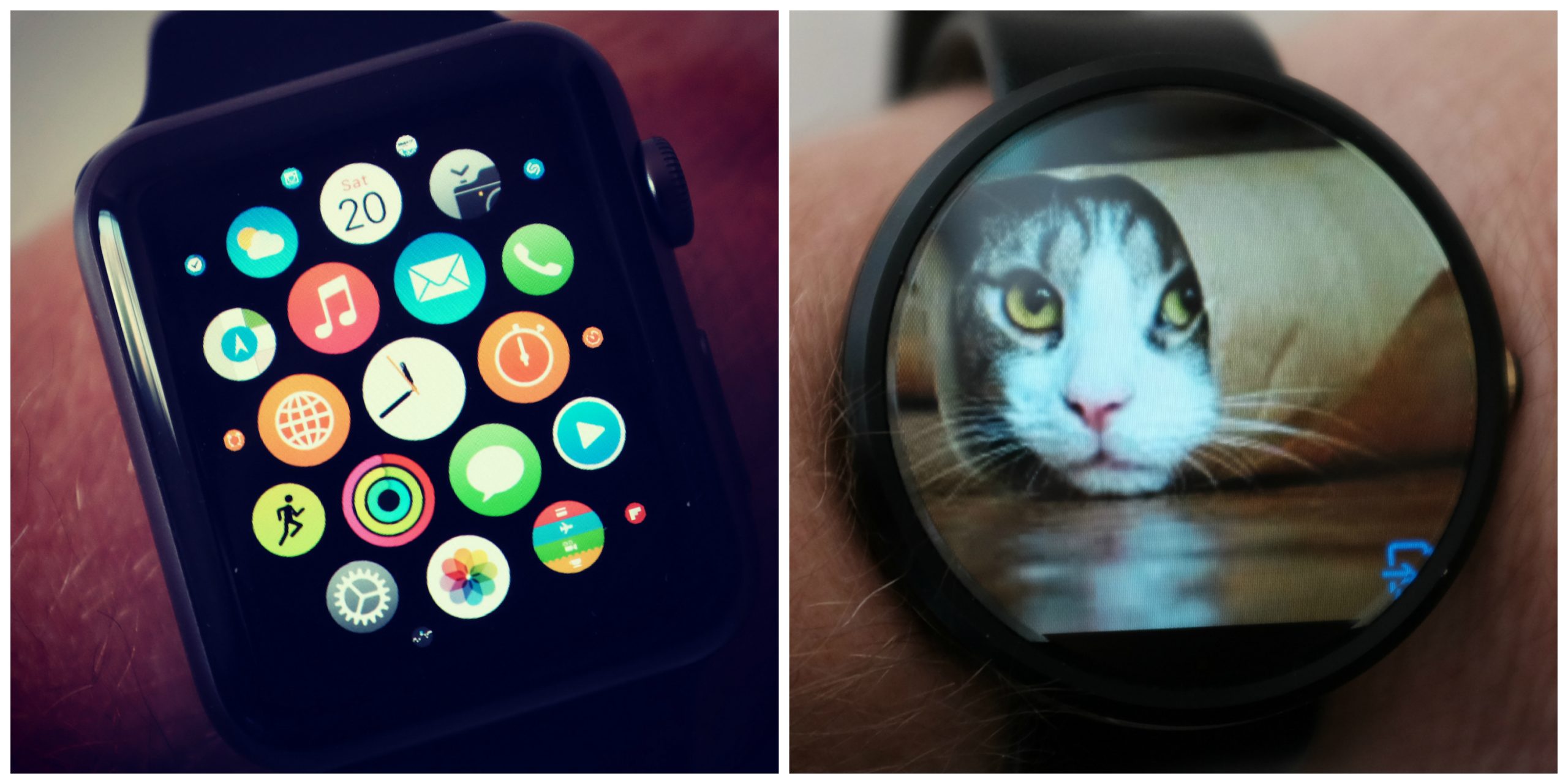
The difference between Apple Watch and Android Wear
This week, I had opportunity to use Apple Watch, making it third of the modern smart variety that I have experienced (the others being LG Urbane and Moto 360). The differences between the platforms are quite startling and worth highlighting. They begin with diverging design ethics derived from the fruit-logo company's app-centric heritage and Google's place in the cloud.
For people who use either Android handset or iPhone, existing device really determines what watch platform you choose, if any—that is for now. Down the path you go. But where it leads is somewhere else, not the same destination. One platform is more responsive to you in varying contextual situations. The other requires more direct interaction, but gives other benefits.
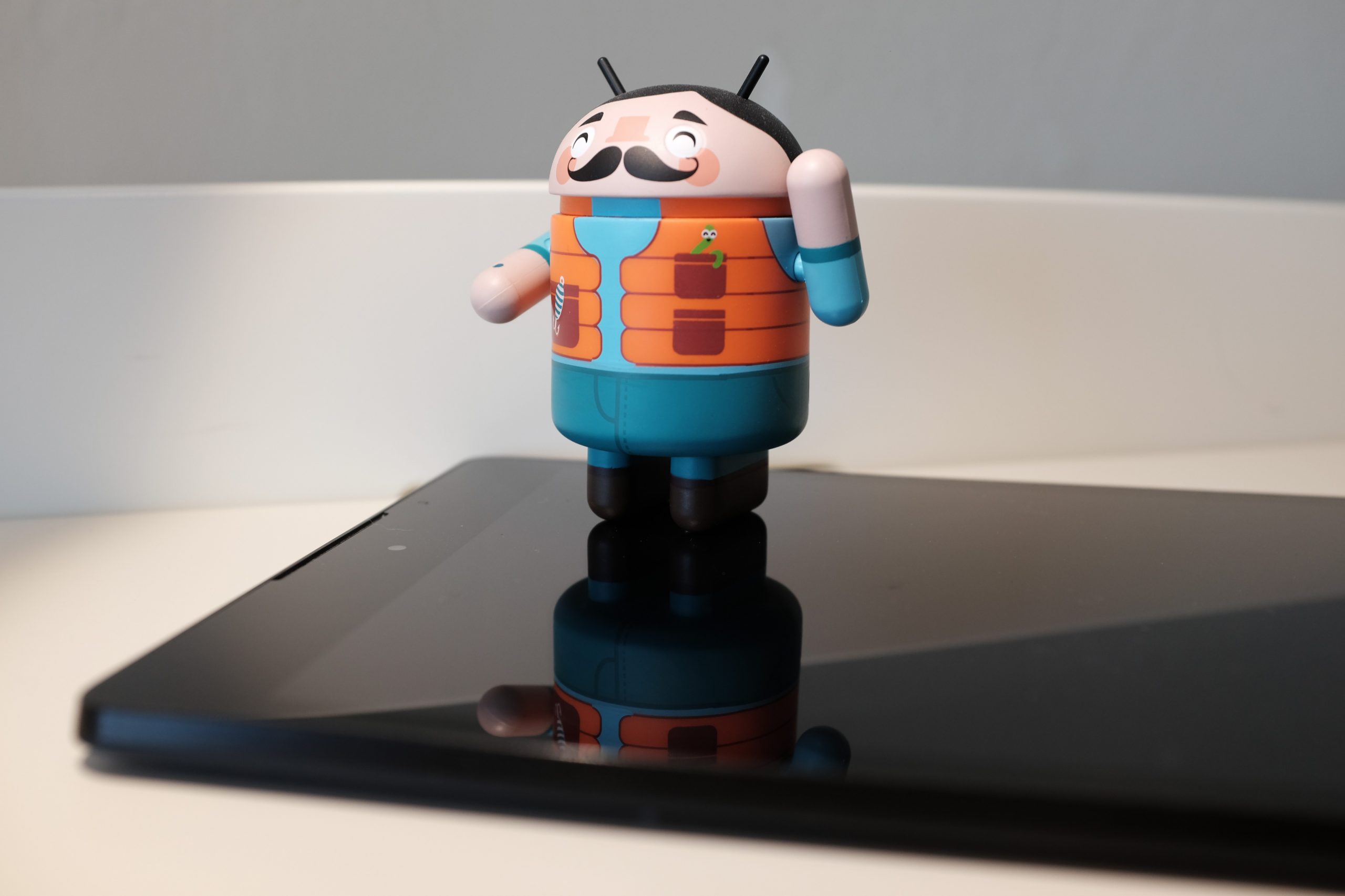
My four months with Nexus 9 [Review]
I want to love Google-branded, HTC-manufactured Nexus 9. But ours is a contentious relationship. N9 is not a bad tablet; others offer better value and performance for the price (or less), with Apple iPad mini being high among them. That said, if pure (aka stock) Android is your thing, there is no worthy alternative. Just prepare for a few compromises, particularly if moving up from Nexus 7.
In his November 2014 review, my colleague Brian Fagioli calls Nexus 9 "magical". I can't agree. During my four months using the tablet, response occasionally hesitates and WiFi too often disconnects. Last week, my N9 received the newest Android update, which somewhat resolves both problems. I purposely delayed this review, waiting for v5.1.1.
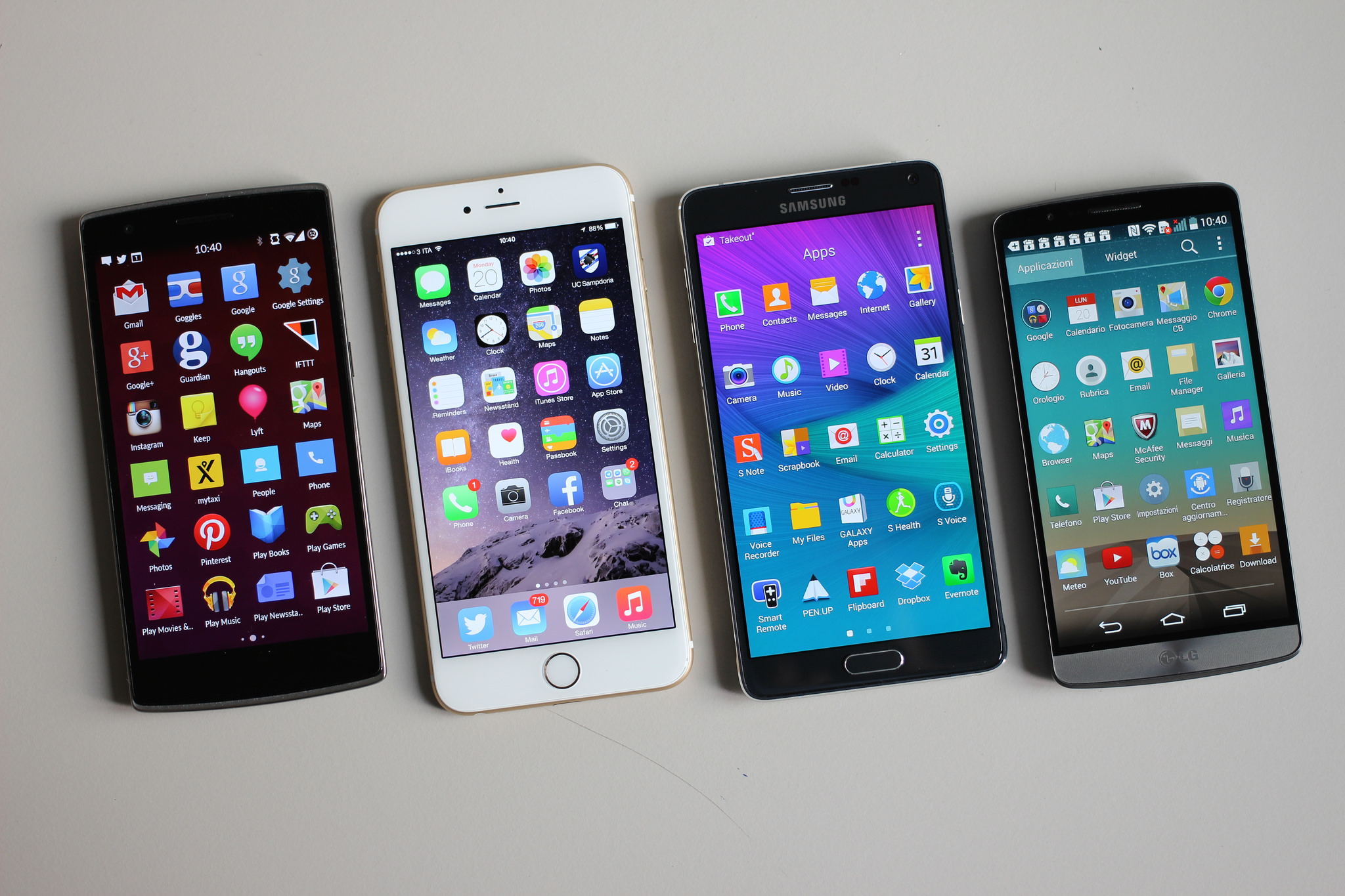
U.S. smartphone market is phabulous
Alongside Euro-zone cell phone data, U.S. first-quarter 2015 phablet shipments are out from Kantar Worldpanel ComTech. Depending on how the numbers are cut, fanboys can rally for their platform.
Spurred by iPhone 6 Plus, iOS showed strong performance, representing 44 percent of phablet sales. However, the number of iOS smartphone switchers from Android fell -- to 11.4 percent from 14.6 percent year over year -- supporting early anecdotal evidence that existing Apple customers are the most-likely 6 Plus buyers. Also confirming: Android smartphone conversions from iOS fell from 9.8 percent to 5.9 percent.
